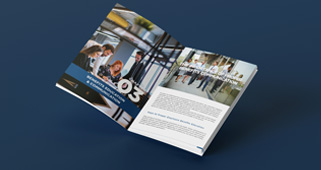Your Human Resources and Accounting departments work hard to make your company the fantastic place it is. While they’re doing everything they can do on their end, sometimes things still slip through the cracks, and businesses fall victim to payroll fraud. According to Forbes, payroll fraud is the number one source of accounting fraud and employee theft, and it occurs in an astounding 27 percent of all businesses. Arming yourself with knowledge, including what to look out for and how to best prevent the most common threats, can help your business mitigate and minimize the risk of payroll fraud in the future. Read on to learn more from the Human Resources and Compliance Experts at Benely!
What is Payroll Fraud?
Payroll fraud occurs when someone, typically an employee of the company, steals, siphons, or embezzles funds through the company’s payroll system. Some of the most common payroll fraud schemes include falsified timesheets, the creation of a ghost employee, or the issuance of authorized pay, bonuses, or expense reimbursements. Payroll fraud can be a one-time occurrence, or it can be a running conspiracy that goes on for years – or even decades.
The average payroll fraud criminal act goes on for a staggering three years, or 36 months. According to the Associated Press, in November of 2021, a former Sherriff’s Captain was found to have defrauded his employer of almost a quarter of a million dollars over a period of around half of a decade. Payroll fraud is more common in smaller businesses (with 100 employees or less) than it is in larger companies.
The Most Common Types of Payroll Fraud:
Creation of a Ghost Employee: This can happen if a fake employee is created in your payroll system. Essentially, someone with access to your system could create a fake employee account and transfer the money “paid” to the ghost employee to themselves. It sounds crazy, but it’s not an uncommon way for wrongdoers to siphon money from your company. This scheme can easily go unnoticed when turnover is particularly high, as not all names will sound familiar to those in charge. According to the United States Department of Justice, in 2021, several criminals were arrested in San Antonio after they defrauded their employer for almost $1.5 million, which they managed to get away with for a period of time through the addition of non-employees to their employer’s payroll.
Timesheet Fraud: Timesheet fraud occurs when employees pump up their wages baselessly. This can happen when an employee logs extra hours on their timesheet, gets another employee to clock them in early or out late, or adds unnecessary incidentals to their expense reports.
Workers Compensation Fraud: This occurs when an employee claims an injury through the workers’ compensation system that either never occurred or occurred in a manner not related to the scope of their employment. Fraudsters may also commit this type of fraud through the falsification or exaggeration of symptoms.
How to Prevent Payroll Fraud:
While it’s almost impossible to completely prevent the commission of financial crimes, here are some of the most powerful strategies to minimize your organization’s exposure to the risk of payroll fraud:
Require Thorough Background Checks for Employees with Access to your Payroll System.
Sometimes, the best offense is a good defense. If you aren’t currently running background checks on potential candidates, you may want to start. They’re one of the simplest and most affordable tools your company can use to prevent financial criminals from making your business their next target. If you need a system in place to conduct thorough background checks before making a hiring decision, reach out to the HR & Compliance Experts at Benely.
Build Redundancies into Your Payroll and Purchasing Procedures
Does your current payroll or purchasing system require one sign-off, signature, or approval to add a new hire, make a purchase, or approve an expense report? If so, you may want to consider adding a checks and balances system to your accounting processes. A practice of always having two or more employees sign off on any movement of money, personnel update, or routine purchase can greatly reduce instances of fraud. When employees have complete control over financial appropriations or decisions, no matter how small, the privacy afforded them can allow for greater temptation for a criminal to act.
Conduct Routine Internal Audits
Conducting your own periodic self-audits is a crucial step to figuring out where red flags are and how they arose. Some important things to look for when conducting accounting audits include:
- duplicate employees
- employees who are still in the system after being terminated
- unverified government identification numbers or personal information
- timecard inconsistencies
- unexplained pay rate increases
- bank account changes
- frequent overtime
- repeated timekeeping adjustments
- misclassified employees
Never Gamble with IT Hardware and Software Security
Even if employees aren’t delegated access to payroll systems, they may be able to gain access without permission if your computer hardware and software are not adequately protected. Making sure your computers have updated anti-virus and anti-malware software is a great start, but you’ll also want to protect your systems from employees who are in physical proximity to the computers. Make sure your software and hardware time out and require a new password entry after a short amount of time away from the program. And of course, change passwords to payroll systems when you have a change in payroll or accounting employee access.
If you’re looking to upgrade your technological equipment, you might also consider a switch to a biometric time clock. “Buddy-punching,” or the process of having a present employee clock a non-present employee in or out, is one of the most common ways employees commit timesheet fraud. Scanning an employee’s iris or fingerprint can effectively prevent this practice altogether. If you discover this is a common occurrence at your workplace, an affordable biometric time clock could be a viable solution.
Partnering with HR & Compliance Experts:
Preventing payroll fraud is complicated. Sometimes, safeguarding your organization from all the risks associated with running a business can feel like an uphill battle. All businesses, large or small, benefit from access to HR & Compliance experts to help take the strain off of compliance and risk mitigation, so you can focus on what you do best – running your business. Ready to learn more? Contact Benely to get started or request a free demo today.






